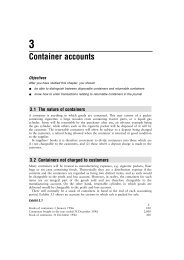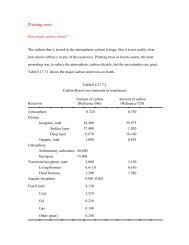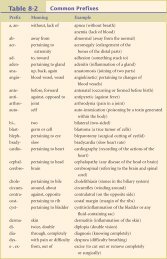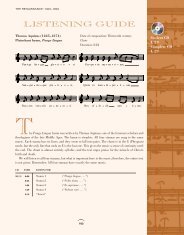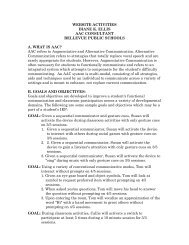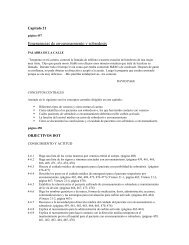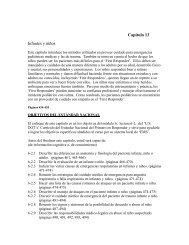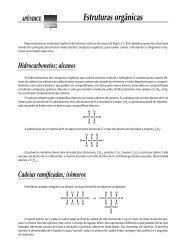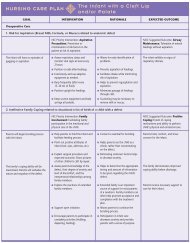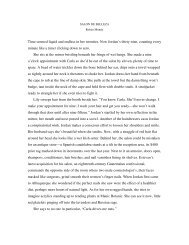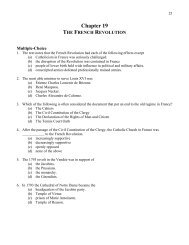French Verb Primer by Helene Gallier-Morgan Regular ... - Pearson
French Verb Primer by Helene Gallier-Morgan Regular ... - Pearson
French Verb Primer by Helene Gallier-Morgan Regular ... - Pearson
Create successful ePaper yourself
Turn your PDF publications into a flip-book with our unique Google optimized e-Paper software.
The 'passé composé' is used for actions completed in the past.<br />
Ex: J'ai répondu I answered/I have answered<br />
Ex: Elle est partie She left/She has left<br />
To conjugate a verb in the 'imparfait,' use the stem of the first person plural of the present indicative. Remove<br />
the -ons ending and replace it with the following endings of the 'imparfait': ais/ais/ait/ions/iez/aient.<br />
Ex: écrire<br />
Present indicative: nous écrivons<br />
Imparfait: J'écrivais/Tu écrivais/Il, elle écrivait/Nous écrivions/Vous écriviez/Ils, elles écrivaient.<br />
1. With verbs ending in -ger in the infinitive, the 'e' placed, in the present indicative, between 'g' and the -ons<br />
ending is kept in the 'imparfait' between 'g' and the endings 'ais,' 'ait,' and 'aient' — but not between 'g' and the<br />
endings 'ions' and 'iez.'<br />
Ex: Ranger<br />
Present indicative: nous rangeons<br />
Imparfait: Je rangeais/Tu rangeais/Il, elle rangeait/Nous rangions/Vous rangiez/Ils, elles rangeaient.<br />
2. With verbs ending in -cer in the infinitive, the cedilla placed under the 'c' in the first person plural of the<br />
present indicative is kept, in the 'imparfait,' before 'a' in the endings 'ais,' 'ait,' and 'aient' — but not before 'i' in the<br />
endings 'ions' and 'iez.'<br />
Ex: Commencer<br />
Present indicative: nous commençons<br />
Imparfait : Je commençais/Tu commençais/Il, elle commençait/Nous commencions/Vous commenciez/Ils,<br />
elles commençaient.<br />
3. With verbs having an 'i' at the end of the stem in the first person plural of the present indicative, there are two<br />
'i' in the first and second persons plural of the 'imparfait.'<br />
Ex: Rire<br />
Present indicative: nous rions<br />
Imparfait : Je riais/Tu riais/Il, elle riait/Nous riions/Vous riiez/Ils, elles riaient.<br />
4. In the 'imparfait', all verbs follow the same conjugation system, except 'être' which is irregular.<br />
être : J'étais/Tu étais/Il, elle était/Nous étions/Vous étiez/Ils, elles étaient<br />
5. Impersonal verbs take the following forms in the 'imparfait':<br />
Falloir : Il fallait<br />
Neiger : Il neigeait<br />
Pleuvoir : Il pleuvait<br />
Valoir : Il valait<br />
USE OF THE 'PASSE COMPOSE' ´<br />
CONJUGATION OF VERBS IN THE 'IMPARFAIT '<br />
Copyright © 2007 <strong>Pearson</strong> Education Canada<br />
6



